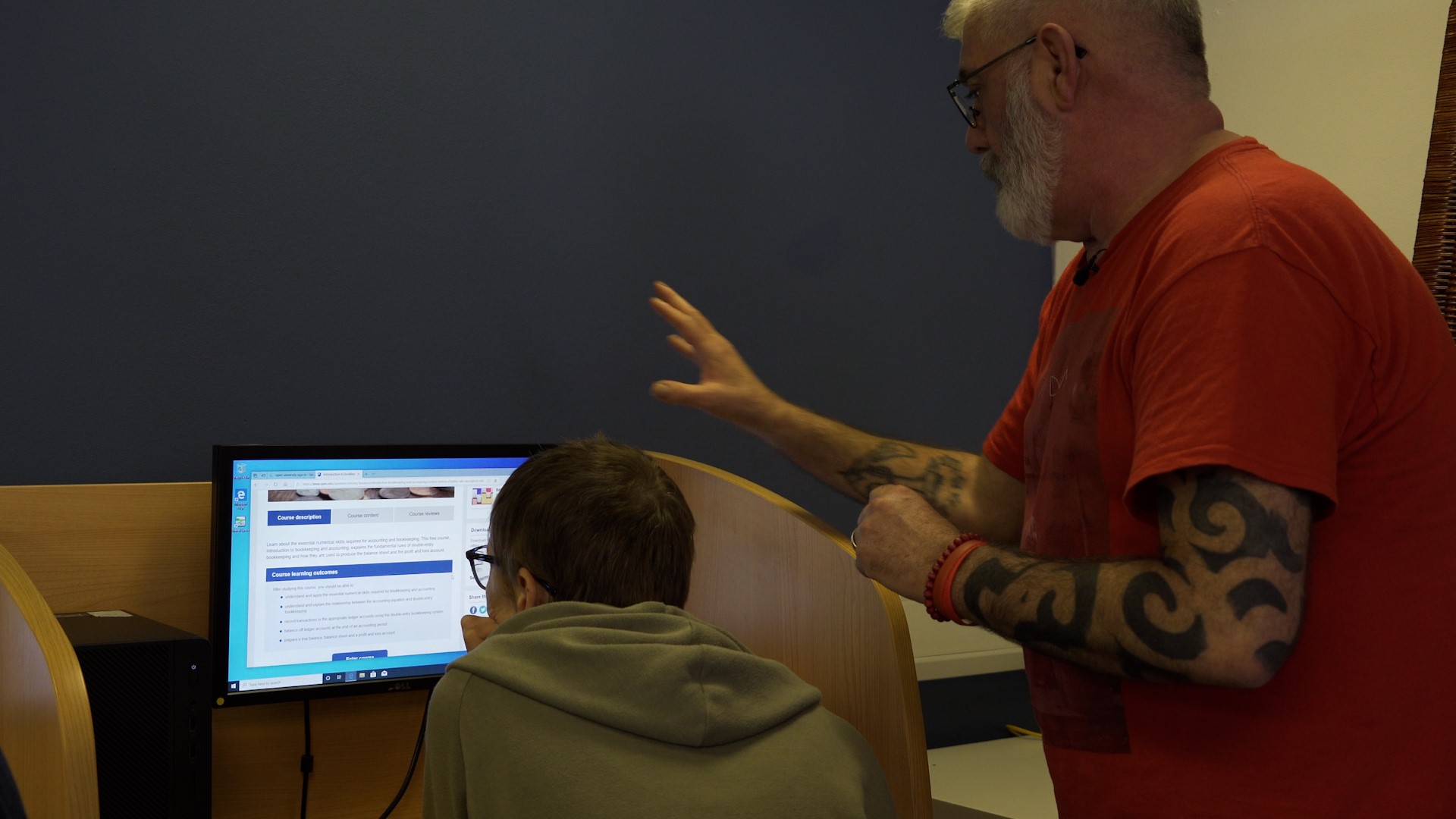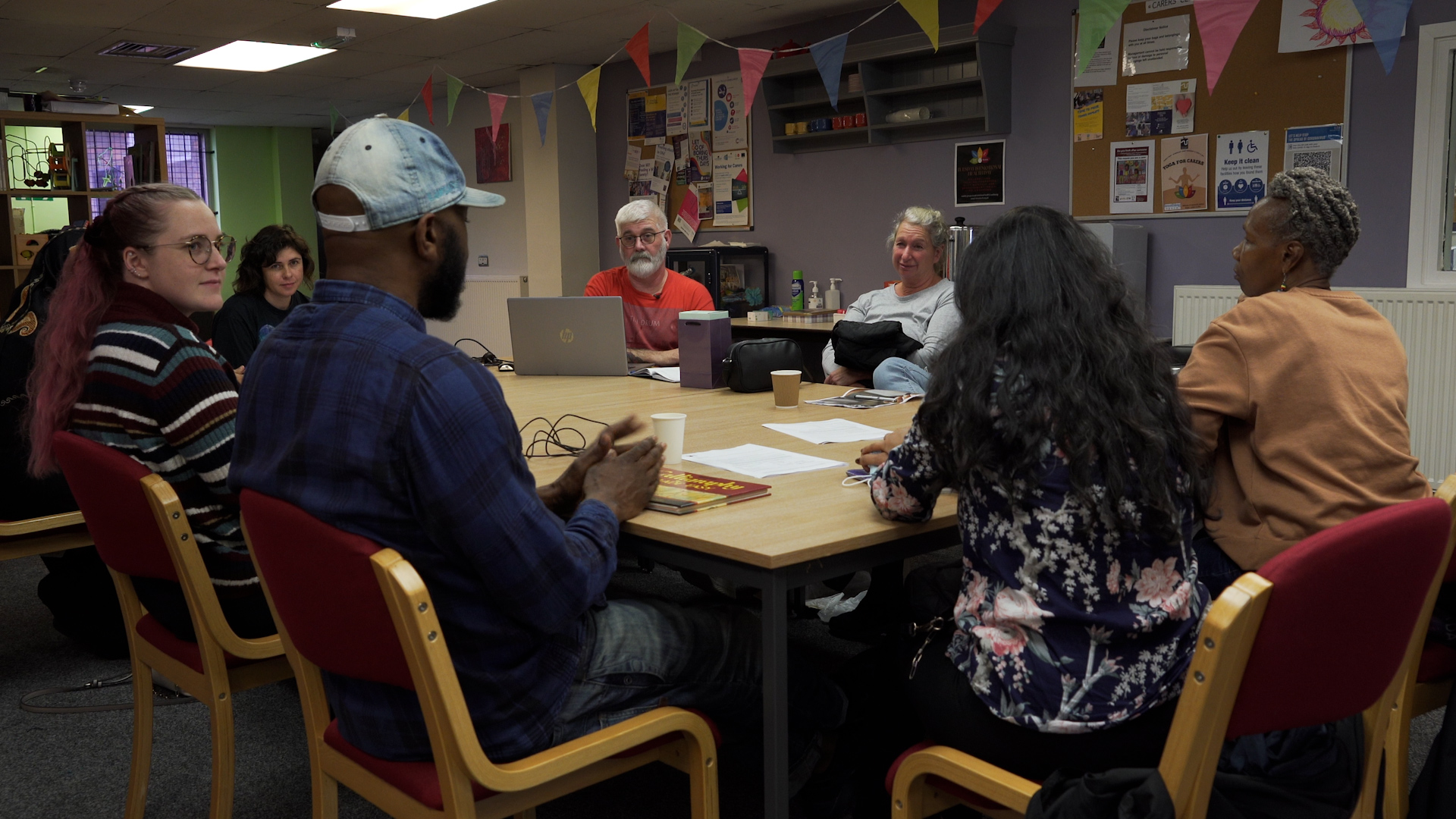Find out more about The Open University's Health and Wellbeing courses.
Providing unpaid care to a loved one can bring benefits such as personal growth and satisfaction, but carers can experience poor mental and physical health, social isolation and other barriers to wellbeing as a result of their caring responsibilities (Larkin, Henwood and Milne, 2019). One source of support, and often a vital lifeline for carers, are local carer organisations and centres.
Nichola spoke to Tony Collins-Moore, Carer Wellbeing Academy Manager at Tower Hamlets Carer Centre (THCC), about how the centre developed a carer support programme from the Five Ways of Wellbeing, including ‘Keep Learning’, through collaborating on a project with Nichola and other OU researchers, Professor Mary Larkin and Dr Chris Kubiak.
Tony, could you tell me about your role at THCC?
When COVID-19 hit, the Academy was in its infancy. I basically ripped up my original plans and focused on looking at activities, workshops and learning that would benefit carers’ emotional and physical wellbeing during the pandemic.The decimation of mental health services and frontline services meant that carers were ever more reliant on us. I kept looking at the impact of the pandemic on carers but then I realised that actually this is just an intense version of what goes on ‘normally’ for carers. This helped to shape the programme of support we have now. I picked up on emotional issues and how people need emotional support and as a result, for example, we now have a bereavement and grief support group.
 Tony Collins-Moore helping a carer at the THCC
Tony Collins-Moore helping a carer at the THCC
The Wellbeing Academy sounds fantastic, can you tell me more about what you do and why is it so important to carers?
We use the Five Ways of Wellbeing as a framework to structure our programme of support and activities. When we first meet a carer, we ask them what they want to do or achieve. We look at any barriers they might face including things like mental health issues, trauma and suicide risk. We can offer some quick wins to start with such as counselling, yoga or a massage. Once they relax and see that this service is for them, we then look at what else they would like. For example, what would get them out of the house, away from their caring role or how can we best support them. We ask them what they would like to achieve, and this is where carers’ wishes to ‘Keep Learning’ often come in.
Ultimately, our carers will turn around to anyone and say, actually the carer centre is the only place that looks after our wellbeing, which is rather nice and from my point of view, it means I’m doing the job right.

There are two things about learning for carers – do they want to do a hobby and have an interest to take them away from their caring or do they want to do training and learning that will aid their caring role, or help them beyond this role? It’s important to talk about what’s going on for each carer – it’s individual.
For example, in our area I think the demographic now is 40% Bengali, 40% White British, 10% African including Somali, 4% Chinese and an emerging Spanish population. We would always encourage people to learn English on an ESOL (English for Speakers of Other Languages) course as it’s just going to benefit them in the long term. It will aid their caring role, personal safety and enhance wellbeing. It’s important that carers can communicate with healthcare professionals.
Learning is also about confidence building. A carer might be interested in art, theatre or writing – learning about what they are interested in will help them to develop the confidence to maybe do something a bit more academic or to help get them into employment.
I think the OU is a really good, established and valuable organisation. It offers much more flexible study options than other educational institutions and the most important thing is it understands carers’ needs, and that’s the difference. With the project (Supporting carers to access learning
through OpenLearn) the flexibility of OU online study is so important. The beauty of OpenLearn is not only that it is free, but accessible at
any time – which is crucial for carers with their responsibilities. Also, we’re
all in different phases of our lives, we’re doing different things and you are
able to choose and enjoy learning at your own pace. For example, of the carers involved
in the project so far, one carer wants to learn about psychology, and another wants
to learn about bookkeeping and accounting – really different. The carers who
came to the study group (part of the project) hadn’t met each other before, so
instantly they were talking about what they wanted to learn. Therefore, there
was the social and emotional side to it, as well as the conversation. This covers
another one of the Five Ways of Wellbeing (connect).
With the project (Supporting carers to access learning
through OpenLearn) the flexibility of OU online study is so important. The beauty of OpenLearn is not only that it is free, but accessible at
any time – which is crucial for carers with their responsibilities. Also, we’re
all in different phases of our lives, we’re doing different things and you are
able to choose and enjoy learning at your own pace. For example, of the carers involved
in the project so far, one carer wants to learn about psychology, and another wants
to learn about bookkeeping and accounting – really different. The carers who
came to the study group (part of the project) hadn’t met each other before, so
instantly they were talking about what they wanted to learn. Therefore, there
was the social and emotional side to it, as well as the conversation. This covers
another one of the Five Ways of Wellbeing (connect).
What has been interesting is that with one carer saying that the bookkeeping and accounting course would have been helpful when he started caring, I realised all carers dealing with PAYE and managing budgets would benefit from this. So, for carers who are dealing with direct payment (managing their own caring budget) I would highly recommend this course. There will be more courses added to the list as the project continues, I am sure!








Rate and Review
Rate this article
Review this article
Log into OpenLearn to leave reviews and join in the conversation.
Article reviews